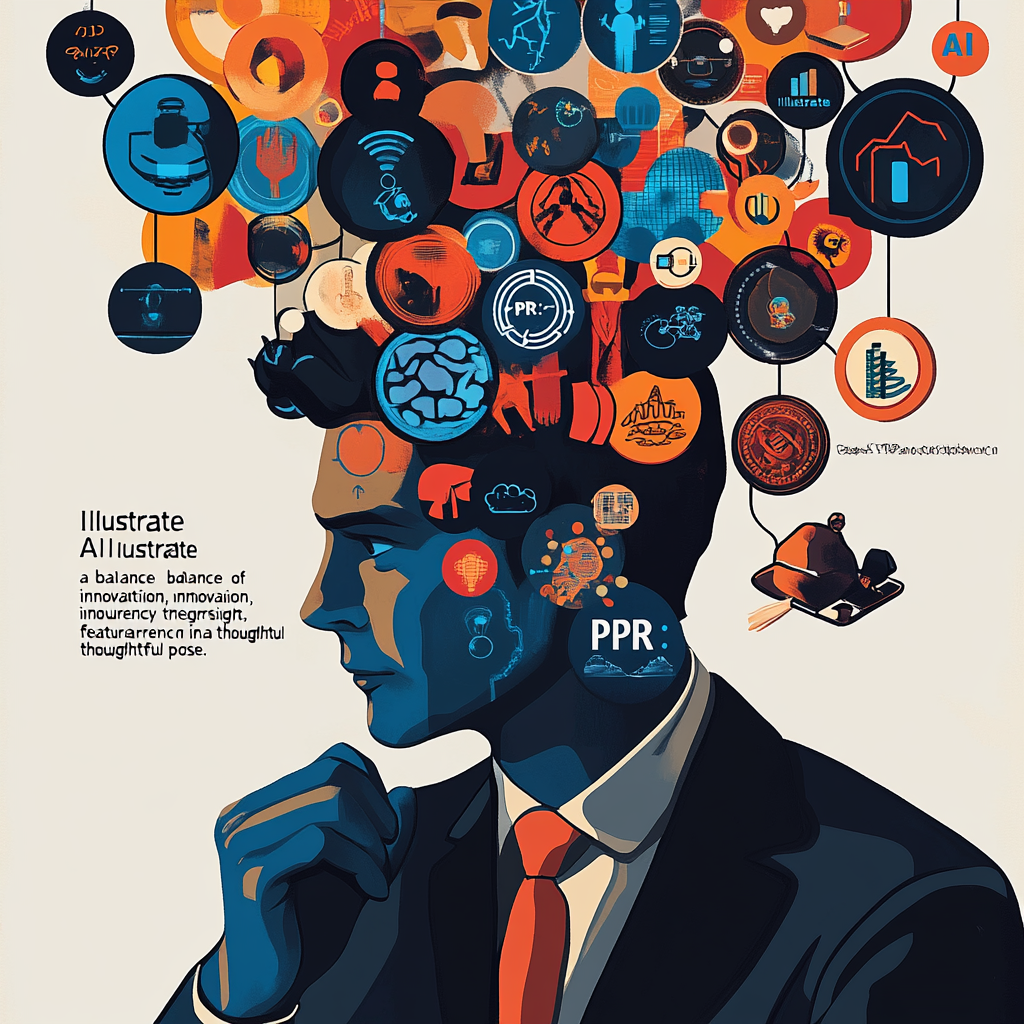
“Balancing Innovation and Integrity: Navigating AI Ethics in Public Relations”
Navigating the Ethical Landscape of AI in Public Relations: Insights from Matias Rodsevich
If you ever thought PR was just about spin and clever slogans, think again. Welcome to the brave new world where Artificial Intelligence (AI) shakes hands with public relations, creating a cocktail of innovation that tastes a bit like mid-shelf whiskey: intriguing yet going down with a burning aftertaste. Matias Rodsevich, in his contemplative work "PR & AI: A marriage of ethical considerations," dives headfirst into this pool of opportunity and ethical quandaries. So, grab your goggles; it’s time for a swim through the key points and ethical considerations that need attention in this AI-enhanced PR seas.
The Rise of AI in PR
Let’s face it: AI is strutting into the PR field like a celebrity on a red carpet. With tools like ChatGPT and Claude AI pulling off some wizardry, communication professionals now have an arsenal of innovative resources at their disposal. But this isn’t just a tech parade; the implications run deeper than a bot’s intricate algorithms.
Picture this: a recent white paper from the University of Sussex and Magenta Associates reveals that a whopping 80% of communication professionals in the UK are using Generative AI tools. Sounds brilliant, right? Well, not so fast. Only 20% are letting their managers in on this shiny little secret, and even worse, fewer than 15% have received actual training on these tools. It’s like giving a cat a smartphone and expecting it to start TikTok-ing.
Ethical Risks and Considerations
Just because you’re playing in the AI sandbox doesn’t mean you get to throw sand in someone’s face. The ethical implications of these shiny AI toys are serious. Let’s brush up on a few risk factors that can turn a fun game of PR into a potential disaster.
Misinformation
Let's be blunt: AI is not your friend when it comes to sorting truth from fiction. These systems generate content based on patterns in data, which swing between useful insights and downright nonsense. In a field like PR—where every word can hold a brand’s reputation—this is a ticking time bomb.
AI can create a delicious stew of incorrect information, amplifying the already daunting problem of misinformation that plagues today’s media landscape. It’s like inviting a gossip-loving parrot to a dinner party: things can get messy in a hurry.
Transparency
Transparency might as well be the golden rule of ethics, and when it comes to AI, it’s a must. PR professionals need to disclose when they’re using AI in their work. Ask yourself: would you trust a report penned by a robot without knowing it? Probably not.
It’s crucial to be loud and proud about using AI-generated content. With the rise of deep fakes and indistinguishable chatbots, it’s a slippery slope if users are left in the dark about whom—or what—they’re working with.
Bias
Like a family dinner gone wrong, biases can lead to hurt feelings and irreparable damage. AI doesn’t operate in a vacuum; it grabs whatever biases are hanging around in its training data and runs amok. The consequences? Distorted public perception and damaged credibility. PR professionals bolstering AI must steer clear of these bias-infested waters.
Privacy
Diving into the deep end with AI also raises some pointed questions about data security and privacy. PR folks need to play it smart, ensuring the data processed by these AI tools is not just secure but compliant with privacy laws. It’s like making sure your party guests have their coats checked properly—not losing any valuables along the way.
Plagiarism
If you think AI is handing out original masterpieces, think again. Most AI just string together existing information, making them the ultimate recycling machines. PR pros need to be vigilant against copyright issues; it’s a veritable minefield out there. To avoid a lawsuit over mistaken identity (or ownership), thorough checks are non-negotiable.
Best Practices for Ethical AI Use in PR
In this brave new world, it pays to have a compass guiding your ethical journey through AI. Here are some best practices to keep you afloat:
Human Oversight and Collaboration
Don’t let AI be the captain of your ship; that’s a recipe for disaster. Human oversight remains absolutely vital. It’s essential to have seasoned professionals reviewing AI-generated content to ensure strategic insights are accurate and sound.
Engaging real-life human experts to vet and refine the AI’s work creates a safety net. Think of it as checking your parachute before the jump: essential for a fun and safe landing!
Transparency with Clients and Teams
If you’re going to dabble in AI, make sure everyone’s in on the game plan. Discussing AI usage openly with your teams and clients aligns expectations and fosters trust. This way, everyone gets to play by the same rules—with no surprises lurking around the corner.
Avoid Over-Reliance on AI
Sure, AI can be your creative muse, but don’t let it take over your artistic flair. Maintaining a human touch when working with AI-generated drafts ensures that your communication retains its soul—something that mere algorithms can’t replicate.
Prioritize Research and Fact-Checking
Here’s a memo for PR pros: “I got it from ChatGPT” won’t fly in a court of law—or any reputable newsroom, for that matter. Being diligent about verification and fact-checking is par for the course, especially when it involves AI-generated content.
Balancing Innovation with Integrity
In the uncharted waters of PR and AI integration, maintaining one’s ethical bearings is crucial. Here are some strategies that can help you sail smoothly:
Clear Organizational Policies
Every ship needs a solid captain’s log, and PR firms should develop clear policies around AI usage. This entails investing in tools with exceptional security features and implementing comprehensive training programs.
Look at companies like Microsoft, who have established AI ethics guidelines to ensure accountability. A robust framework helps maintain those coveted ethical standards.
Human Elements in Communication
AI should serve to amplify—not overshadow—the core strengths of PR professionals. Skills like storytelling and relationship-building need to remain front and center. An AI may assist in generating insights, but the creativity and nuance born from human experience are irreplaceable.
Conclusion
The dance between AI and PR is sophisticated, enticing, and not without its snares. By embracing ethical guidelines, upholding transparency, and ensuring human contributions remain at the forefront, PR practitioners can harness the power of AI responsibly. The ethical principles created today will shape the moral compass of the industry in this rapidly evolving landscape.
Ultimately, the goal is to build a future in which PR remains a beacon of authenticity, transparency, and responsible communication.
Want to stay up to date with the latest news on neural networks and automation? Subscribe to our Telegram channel: @ethicadvizor

